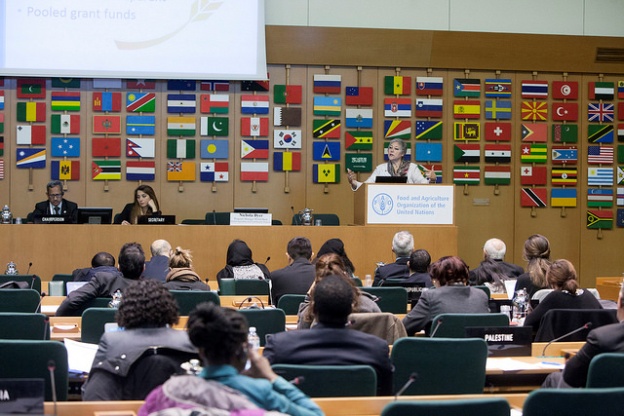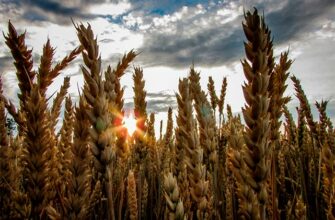According to the Russian office of the Food and agriculture organization of the United Nations (FAO), in January-December 2016 FAO Food Price Index (FFPI fell by -1.5% compared to the 2015 level and reached 161.6. While world prices for grain and meat dairy products declined, those for sugar and vegetable oil grew. The fall in grain prices (FFPI considers wheat) was partly due to the high harvest in Russia.
Food and agriculture organization (FAO) compare prices as FFPI for meat, sugar, dairy products, vegetable oils, grains (“a basket of food commodities”, 5 items). The base period is 2002-2004.
Meanwhile, according to the estimates of Russian Statistics Office, in Russia in 2016 food prices rose by 6%. The fish and seafood prices increased by 9.7%, butter – by 9.5%, and cereals and legumes – by 9.4%. The price of sugar in the world on average has risen in price by 34.2%, in Russia during this period it has not changed, and the price of vegetable oil globally has risen in price by 11.4%, while Russian price increased by 16.1% (sunflower oil).
The highest prices for food traditionally recorded in Chukotka, and the lowest were observed in the Belgorod region, which is one of the most advanced in Russia for the development of agriculture.
Probably, Russian prices will become more attractive with the improvement of position of agriculture and achieving food security.
Russian agriculture, which has the goal to achieve sustainable development for 15 years, today suffers from natural (the volatility of the yields and nature conservation) and systemic problems (lack of investment in agricultural science, small business support etc). According to the head of the Russian office of the FAO Eugenia Serova at Gaidar forum, the solution to these problems is connected with the UN Agenda to 2030 and its goal number 2 for overcoming hunger, achieving food security aid to agriculture and to improve the supply of the population. These problems require systemic solutions.
Sources: FAO, Russian Statistics Committee




